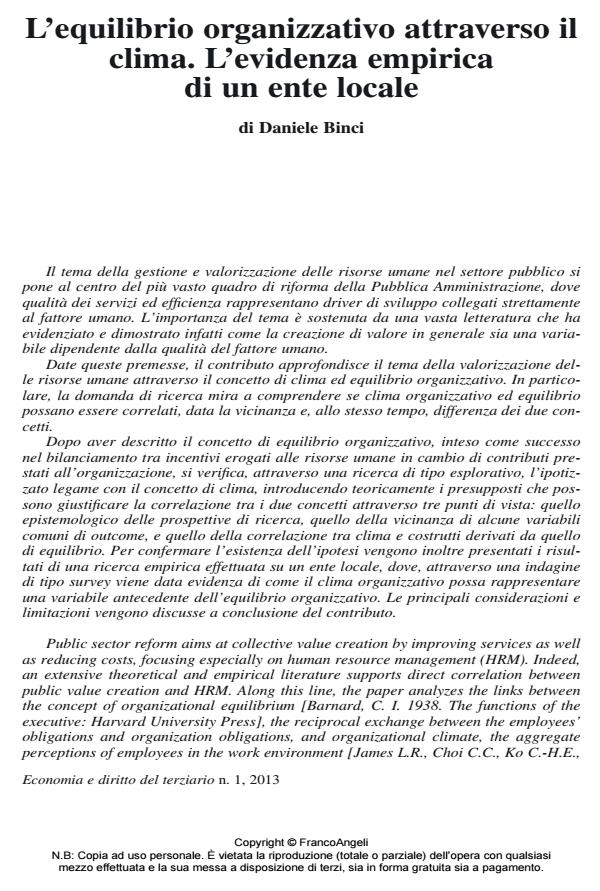L’equilibrio organizzativo attraverso il clima. L’evidenza empirica di un ente locale
Journal title ECONOMIA E DIRITTO DEL TERZIARIO
Author/s Daniele Binci
Publishing Year 2013 Issue 2013/1
Language Italian Pages 33 P. 65-97 File size 421 KB
DOI 10.3280/ED2013-001004
DOI is like a bar code for intellectual property: to have more infomation
click here
Below, you can see the article first page
If you want to buy this article in PDF format, you can do it, following the instructions to buy download credits

FrancoAngeli is member of Publishers International Linking Association, Inc (PILA), a not-for-profit association which run the CrossRef service enabling links to and from online scholarly content.
Public sector reform aims at collective value creation by improving services as well as reducing costs, focusing especially on human resource management (HRM). Indeed, an extensive theoretical and empirical literature supports direct correlation between public value creation and HRM. Along this line, the paper analyzes the links between the concept of organizational equilibrium [Barnard, C. I. 1938. The functions of the executive: Harvard University Press], the reciprocal exchange between the employees’ obligations and organization obligations, and organizational climate, the aggregate perceptions of employees in the work environment [James L.R., Choi C.C., Ko C.-H.E., McNeil P.K., Minton M.K., Wright M.A., & Kwang-il K. 2008. Organizational and psychological climate: A review of theory and research. European Journal of Work & Organizational Psychology, 17: 5-32.] suggesting the hypothesis of direct correlation between the two constructs. The study is conducted through two main steps. First, a critical review has been developed to suggest the differences and the similarities between the two constructs. Then, the hypothesis is also supported by an empirical research conducted in a local public administration where hierarchical regression analysis between climate (IV) and organizational equilibrium (DV) was run. Results show a positive relation in three cases analyzed. In the concluding chapter discussion about the main results and conclusion are reported
Daniele Binci, L’equilibrio organizzativo attraverso il clima. L’evidenza empirica di un ente locale in "ECONOMIA E DIRITTO DEL TERZIARIO " 1/2013, pp 65-97, DOI: 10.3280/ED2013-001004